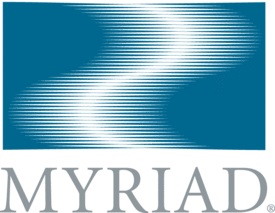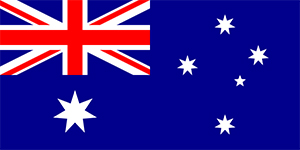By Vicky Longshaw and Gary Cox --
 In a significant win for Myriad, and their licensee Genetic Technologies Ltd, the Australian Federal Court on Friday upheld Myriad's method patents used in cancer screening for mutations in the BRCA1 gene. This decision will provide much-needed certainty to gene patent holders in Australia.
In a significant win for Myriad, and their licensee Genetic Technologies Ltd, the Australian Federal Court on Friday upheld Myriad's method patents used in cancer screening for mutations in the BRCA1 gene. This decision will provide much-needed certainty to gene patent holders in Australia.
The applicants in the matter, Cancer Voices Australia and Yvonne D'Arcy, argued that the patents claimed unpatentable subject matter. The Applicants also argued that the claims covered naturally occurring DNA, which was not materially different to the DNA that occurs in nature.
The Court held that the claimed nucleic acid is "isolated" and so the invention is patentable under Australian patent law.
The court regarded the claims as not being directed to naturally occurring nucleic acids as they exist in nature. The removal of nucleic acid from its natural environment was found to be an artificial state of affairs and therefore patentable. Basing its reasoning on well-established Australian case law, the court found that in the absence of human intervention, naturally occurring nucleic acid does not exist outside the cell and thus "isolated" nucleic acid does not exist inside the cell.
 Recent failed attempts to amend the Patent Act to exclude gene patents were taken into account. In particular, the rejection by Parliament of recent proposals that the Patents Bill 1990 be amended to include an exclusion of claims directed to DNA and RNA. The Court inferred that it was not the intention of Parliament to exclude gene patenting.
Recent failed attempts to amend the Patent Act to exclude gene patents were taken into account. In particular, the rejection by Parliament of recent proposals that the Patents Bill 1990 be amended to include an exclusion of claims directed to DNA and RNA. The Court inferred that it was not the intention of Parliament to exclude gene patenting.
The new experimental use defence incorporated into the Intellectual Property Laws Amendment (Raising the Bar) Act 2012 (Cth), effective 16 April 2012, was referred to by the Court. This new experimental use exemption envisages future research into previously undiscovered genetic mutations using patented biological materials.
This decision is in line with patent law in other countries such as the United Kingdom and in the United States where isolated nucleic acid may be patentable. Myriad's successful appeal in the US where the Federal Circuit upheld the validity of their patent claims, was noted by the Court. However, since patent law in Australia is different to that of the US, the Federal Court based its decision on Australian case law. The challenge to Myriad's patent was dismissed with costs.
Dr. Longshaw is a Consultant and Senior Member of Wrays Sydney Chemical and Biological Team; Mr. Cox is a Director of Wrays, and practices in life sciences & biotechnology, pharmaceuticals, and medical technologies.
Patent Docs thanks Wrays for providing one of two views on the Cancer Voices Australia decision that we are able to pass along to our readers.